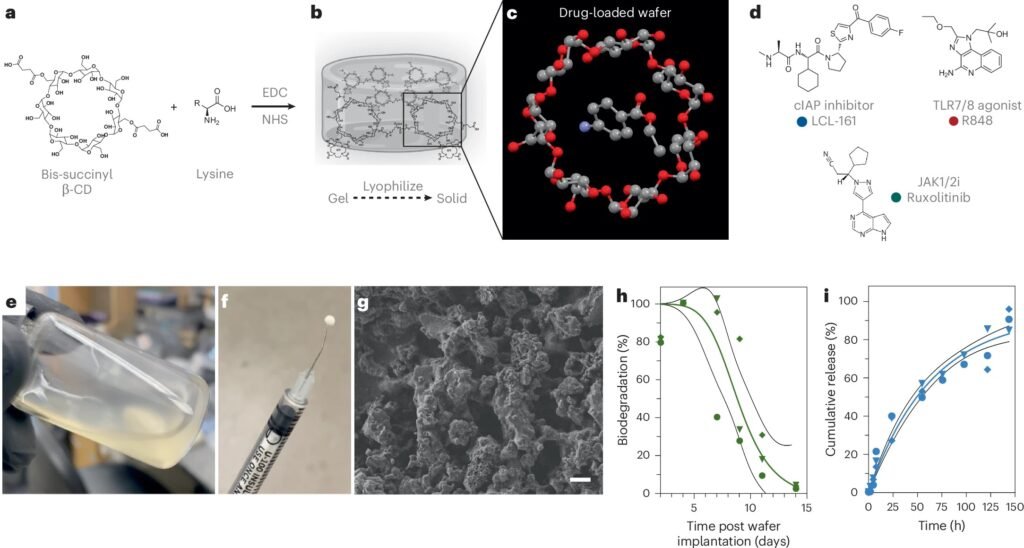A biodegradable implant developed by researchers at Massachusetts General Hospital and Harvard Medical School may offer new hope for patients with glioblastoma, an aggressive brain cancer known for its high recurrence rate. The device, called the CANDI wafer, is designed to be placed directly into the brain cavity after tumor removal, where it slowly releases a combination of drugs that reprogram immune cells to fight residual cancer.
Glioblastoma typically returns after surgery and radiochemotherapy due to the presence of immunosuppressive myeloid cells in the tumor microenvironment. The CANDI wafer targets these cells by delivering immune-modulating molecules that activate their cancer-fighting potential. In preclinical mouse models, the implant prevented tumor recurrence in more than half of treated animals and showed signs of long-term survival.
The wafer contains three drugs that are released over time to stimulate interleukin-12 production, a key immune signal that enhances anti-tumor activity. This localized delivery avoids systemic toxicity and concentrates the therapeutic effect where it is most needed. The implant is fully biodegradable and designed to dissolve after completing its drug release cycle.
Researchers believe this approach could complement existing treatments and reduce the need for repeated surgeries or aggressive chemotherapy. The study also reported promising early results in human tissue models, suggesting potential for clinical translation.
Article from MGB: Research Spotlight: Implantable “CANDI” Wafer Shows Promise for Preventing Glioblastoma Recurrence
Abstract in Nature Biomedical Engineering: Targeting immunosuppressive myeloid cells via implant-mediated slow release of small molecules to prevent glioblastoma recurrence

